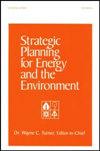Application of Digital Economy Machine Learning Algorithm for Predicting Carbon Trading Prices Under Carbon Reduction Trends
Q3 Environmental Science
Strategic Planning for Energy and the Environment
Pub Date : 2024-01-14
DOI:10.13052/spee1048-5236.43210
引用次数: 0
Abstract
Due to the increasing demand for fossil fuels, excessive emissions of greenhouse gases such as CO2 have been caused. With the intensification of global climate anomalies and warming, how to reduce greenhouse gas emissions is an important issue currently facing the international community. The influencing factors of carbon price are complex, and accurate prediction of carbon price is a difficult problem. There are still some problems in the existing carbon trading price prediction models, such as insufficient understanding of the enormous potential of machine learning models to ilift the performance. The study will use two machine learning models that can address the shortcomings of traditional artificial intelligence models as the basic prediction models. The specific content includes machine learning prediction models that extend to extreme learning machine theory and fuzzy inference system theory. By integrating data preprocessing algorithms, artificial intelligence optimization algorithms, feature selection algorithms, etc., this study constructs and applies a carbon trading price prediction model from multiple perspectives to compensate for the shortcomings in current research. The corresponding values for each indicator in the algorithm are 5.6214E-12 (maximum), 2.8546E-12 (minimum), 4.0239E-12 (mean), and 5.4402E-13 (variance). Compared with other comparative optimization algorithms, this indicates that the hybrid optimization algorithm is an efficient optimization method for the model, which can effectively optimize different problems. In theory, the proposed multiple improved carbon trading price prediction models can theoretically compensate for the shortcomings in existing carbon trading price predictions.应用数字经济机器学习算法预测碳减排趋势下的碳交易价格
由于对化石燃料的需求不断增加,导致二氧化碳等温室气体排放过多。随着全球气候异常和变暖的加剧,如何减少温室气体排放是当前国际社会面临的重要问题。碳价格的影响因素复杂,准确预测碳价格是一个难题。现有的碳交易价格预测模型还存在一些问题,如对机器学习模型在提高性能方面的巨大潜力认识不足。本研究将采用两种能够解决传统人工智能模型缺陷的机器学习模型作为基本预测模型。具体内容包括扩展到极限学习机理论和模糊推理系统理论的机器学习预测模型。本研究通过整合数据预处理算法、人工智能优化算法、特征选择算法等,从多个角度构建并应用碳交易价格预测模型,弥补了当前研究的不足。算法中各指标的对应值分别为:5.6214E-12(最大值)、2.8546E-12(最小值)、4.0239E-12(均值)、5.4402E-13(方差)。与其他比较优化算法相比,这表明混合优化算法是一种高效的模型优化方法,可以有效优化不同问题。从理论上讲,所提出的多种改进的碳交易价格预测模型可以从理论上弥补现有碳交易价格预测的不足。
本文章由计算机程序翻译,如有差异,请以英文原文为准。
求助全文
约1分钟内获得全文
求助全文
来源期刊

Strategic Planning for Energy and the Environment
Environmental Science-Environmental Science (all)
CiteScore
1.50
自引率
0.00%
发文量
25
 求助内容:
求助内容: 应助结果提醒方式:
应助结果提醒方式:


